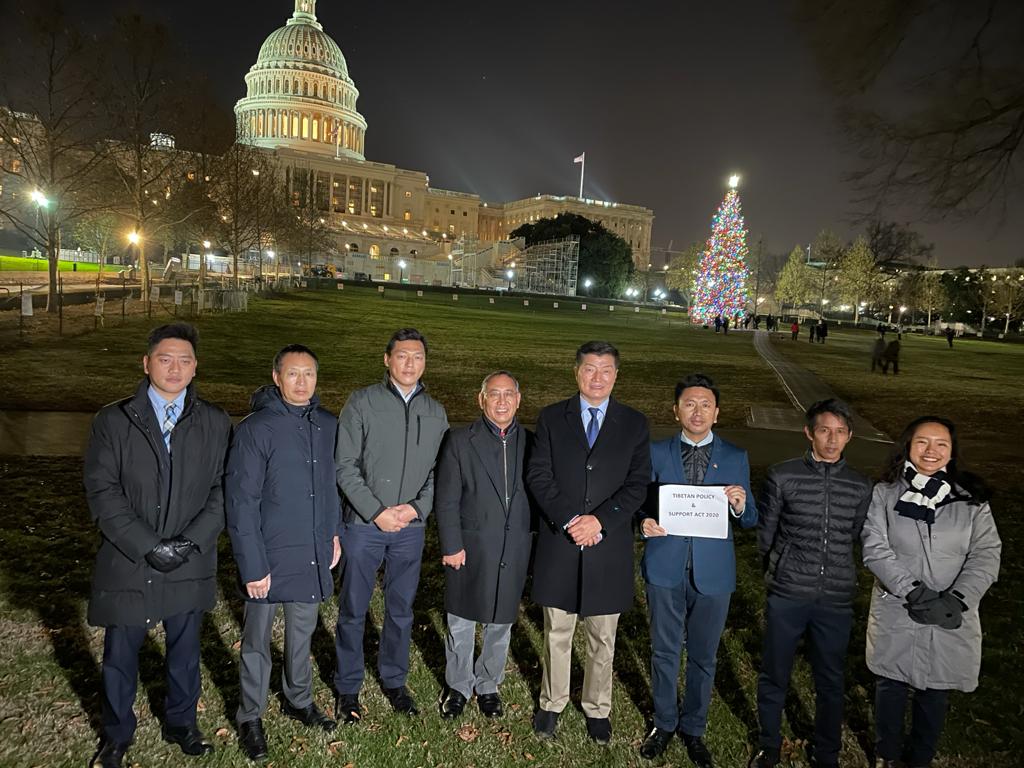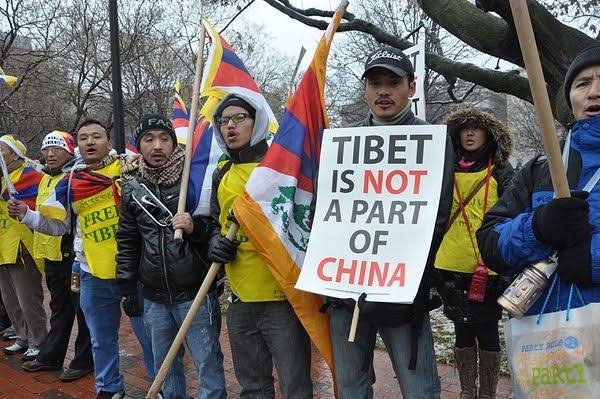Summary: The Tibetan Policy and Support Act (TPSA) was passed by the House and Senate on Monday and will pave the way for the U.S. government to issue economic and visa sanctions against any Chinese officials who interfere with the succession of the Dalai Lama. It will also require China to allow Washington to establish a consulate in Lhasa, the capital of Tibet before Beijing can open any more consulates in the U.S. The TPSA also proposes a dialogue between the Chinese government and the Dalai Lama.
As expected the passing of the bill has angered China which annexed Tibet forcibly in 1950. Accusing the U.S. of meddling in its internal affairs, Chinese Foreign Ministry spokesman Wang Wenbin said Tuesday that China strongly opposed the bill. In the daily briefing, Wang said that issues involving Tibet, Taiwan, and Hong Kong “concern China’s sovereignty and territorial integrity”.

The U.S. Congress on Monday passed the landmark Tibetan Policy and Support Act (TPSA) with far-reaching effects for China and Tibet. The bill once signed by President Trump will become an act that will upgrade U.S. support for Tibetans in key areas, including sanctioning Chinese officials if they try to appoint the next Dalai Lama. In effect, the act reaffirms the rights of Tibetans to choose a successor to the Dalai Lama
The TPSA was passed by the House and Senate as an amendment to the $1.4 trillion government-spending bills and the $900 billion coronavirus relief package. This will pave the way for the U.S. government to issue economic and visa sanctions against any Chinese officials who interfere with the succession of the Dalai Lama. It will also require China to allow Washington to establish a consulate in Lhasa, the capital of Tibet before Beijing can open any more consulates in the U.S.
The bill, backed by both Democrats and Republicans, is expected to be signed into law by President Donald Trump.
Lobsang Sangay, president of the Central Tibetan Administration (CTA), the Tibetan government in exile, called the passage of the bill “a momentous landmark for the Tibetan people.” “By passing the TPSA, Congress has sent its message loud and clear that Tibet remains a priority for the United States and that it will continue its steadfast support for His Holiness the Dalai Lama and the CTA,” Sangay said while adding that it was a victory for the Tibetan freedom struggle.
As per the report on Tibet.net, the official news portal of the CTA, the passage of the bill is a historic achievement for the Tibetan movement as the TPSA makes it official United States policy that decisions regarding the reincarnation of the Dalai Lama are exclusively within the authority of the current Dalai Lama, Tibetan Buddhist leaders, and the Tibetan people. Any interference by Chinese government officials will be met with serious sanctions and be deemed inadmissible into the United States, it says.
The bill commends the Dalai Lama for his decision to implement democratic governance and also commends the Tibetan exile community for successfully adopting a system of self-governance with democratic institutions to choose their leaders. In addition, it formally acknowledges the CTA as the legitimate institution reflecting the aspirations of the Tibetan diaspora around the world and the Sikyong as the President of the CTA.
The TPSA also proposes a dialogue between the Chinese government and the Dalai Lama.
The TPSA also introduces new key provisions aimed at protecting the environment and water resources on the Tibetan plateau. It recognizes the importance of traditional Tibetan grassland stewardship in mitigating the negative effects of climate change in the region as opposed to the Chinese government’s forced resettlement of the Tibetan nomads. In addition, it calls for greater international cooperation to monitor the environment on the Tibetan plateau.
Significantly, the bill enumerates that in order to promote access to Tibet as mentioned in the Reciprocal Access to Tibet Act of 2018, the TPSA calls for the establishment of a United States Consulate in Lhasa, the capital city of Tibet. Until such an establishment, the bill calls upon the Secretary of State to not authorize any new Chinese consulate in the United States, reports Tibet.net.

The TPSA also proposes a “regional framework on water security” and greater participation from the community in dialogue with China on monitoring the region’s environment.
“The People’s Republic of China has already completed water transfer programmes diverting billions of cubic metres of water yearly and has plans to divert more waters from the Tibetan plateau in China,” the TPSA says.
China Fumes!

As expected the passing of the bill ha angered China which annexed Tibet forcibly in 1950. China has also usurped the rights of declaring the next Dalai Lama, saying its leaders have the right to approve the Dalai Lama’s successor.
Accusing the U.S. of meddling in its internal affairs, Chinese Foreign Ministry spokesman Wang Wenbin said Tuesday that China strongly opposed the bill. In the daily briefing, Wang said that issues involving Tibet, Taiwan, and Hong Kong “concern China’s sovereignty and territorial integrity”.
“We urge the U.S. side to stop meddling in China’s internal affairs and refrain from signing into law these negative clauses and acts, lest it further harms our further cooperation and bilateral relations,” Wang said.
The Dalai Lama fled into exile in India in 1959 after a failed uprising against Chinese rule. Since then, China regards the exiled Dalai Lama as a dangerous separatist. The latest show of support from the U.S. Congress is sure to increase already tense ties between the two countries.
Relations between China and the United States have deteriorated to their worst in decades over a range of issues, including trade, Taiwan, human rights, Hong Kong, the South China Sea, and the coronavirus.
